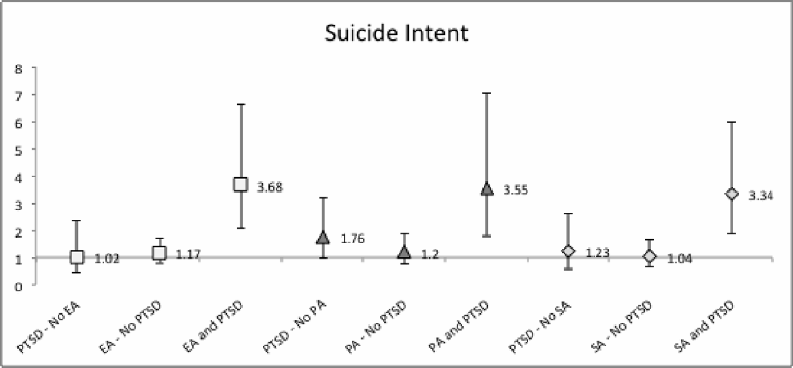Actions for selected content:
Most cited
This page lists all time most cited articles for this title. Please use the publication date filters on the left if you would like to restrict this list to recently published content, for example to articles published in the last three years. The number of times each article was cited is displayed to the right of its title and can be clicked to access a list of all titles this article has been cited by.
- Cited by 1
Dissociative Identity Disorder: a case of three Selfs
-
- Published online by Cambridge University Press:
- 19 July 2023, pp. S955-S956
-
- Article
-
- You have access
- Open access
- Export citation
- Cited by 1
P0230 - Adult ADHD: Psychometric properties of the brown add scales
-
- Published online by Cambridge University Press:
- 16 April 2020, p. S368
-
- Article
-
- You have access
- Export citation
- Cited by 1
The consequences of the pandemic among patients with psychiatric history
-
- Published online by Cambridge University Press:
- 01 September 2022, p. S543
-
- Article
-
- You have access
- Open access
- Export citation
- Cited by 1
1102 – Suicidal Intent Is Increased In Suicide Attempters With Posttraumatic Stress Disorder After Childhood Abuse
-
- Published online by Cambridge University Press:
- 15 April 2020, 28-E496
-
- Article
-
- You have access
- Export citation
- Cited by 1
Early negative life events during childhood and social anxietyin adulthood
-
- Published online by Cambridge University Press:
- 16 April 2020, p. 140
-
- Article
-
- You have access
- Export citation
- Cited by 1
Psychological hallmarks of endometriosis with emphasis on sexual dysfunction, stress, anxiety and depression
-
- Published online by Cambridge University Press:
- 19 July 2023, pp. S646-S647
-
- Article
-
- You have access
- Open access
- Export citation
- Cited by 1
Identifying and Managing Mental Health Needs of Homeless Individuals
-
- Published online by Cambridge University Press:
- 23 March 2020, p. S7
-
- Article
-
- You have access
- Export citation
- Cited by 1
Delusional disorders with religious content
-
- Published online by Cambridge University Press:
- 13 August 2021, p. S769
-
- Article
-
- You have access
- Open access
- Export citation
- Cited by 1
Metabolic syndrome and its association with psychotropic medications in psychiatric patients from CAISM–IGSS (Center for Comprehensive Care Mental Health/Guatemalan Institute of Social Security)
-
- Published online by Cambridge University Press:
- 23 March 2020, pp. S545-S546
-
- Article
-
- You have access
- Export citation
- Cited by 1
Executives functions in co-occuring adult attention deficit hyperactivity disorder and alcohol use disorder
-
- Published online by Cambridge University Press:
- 13 August 2021, p. S243
-
- Article
-
- You have access
- Open access
- Export citation
- Cited by 1
Use of risk assessment tools for people with intellectual disability: The latest evidence
-
- Published online by Cambridge University Press:
- 23 March 2020, p. S38
-
- Article
-
- You have access
- Export citation
- Cited by 1
Suicide and body mass index
-
- Published online by Cambridge University Press:
- 23 March 2020, pp. s271-s272
-
- Article
-
- You have access
- HTML
- Export citation
- Cited by 1
O-35 - Agomelatine Versus Venlafaxine in the Treatment of Anhedonia in Major Depressive Subjects: a Pilot Study
-
- Published online by Cambridge University Press:
- 15 April 2020, p. 1
-
- Article
-
- You have access
- Export citation
- Cited by 1
The nurses’ assessment of the psychiatric care quality and the development of measures to improve it
-
- Published online by Cambridge University Press:
- 27 August 2024, pp. S283-S284
-
- Article
-
- You have access
- Open access
- Export citation
- Cited by 1
La mémoire autobiographique chez l’enfant avec Trouble du Spectre Autistique : du passé au futur
-
- Published online by Cambridge University Press:
- 17 April 2020, pp. 601-602
-
- Article
-
- You have access
- HTML
- Export citation
- Cited by 1
The effect of quetiapine monotherapy on subjective estimates of sleep in acute mania
-
- Published online by Cambridge University Press:
- 16 April 2020, p. S263
-
- Article
-
- You have access
- Export citation
- Cited by 1
Transition in metabolic health phenotypes across general adiposity categories and association with the risk of depression: a prospective analysis
- Part of:
-
- Published online by Cambridge University Press:
- 29 February 2024, e26
-
- Article
-
- You have access
- Open access
- HTML
- Export citation
- Cited by 1
Brain Structural Abnormalities in Violent Offenders with Schizophrenia
-
- Published online by Cambridge University Press:
- 15 April 2020, p. 1
-
- Article
-
- You have access
- Export citation
- Cited by 1
Tiapride and carbamazepine in the treatment of alcohol withdrawal
-
- Published online by Cambridge University Press:
- 16 April 2020, p. 210s
-
- Article
-
- You have access
- Export citation
- Cited by 1
Vr exposure in cbt is effective and efficacious treatment for simple phobia (flight phobia)
-
- Published online by Cambridge University Press:
- 13 August 2021, p. S110
-
- Article
-
- You have access
- Open access
- Export citation

